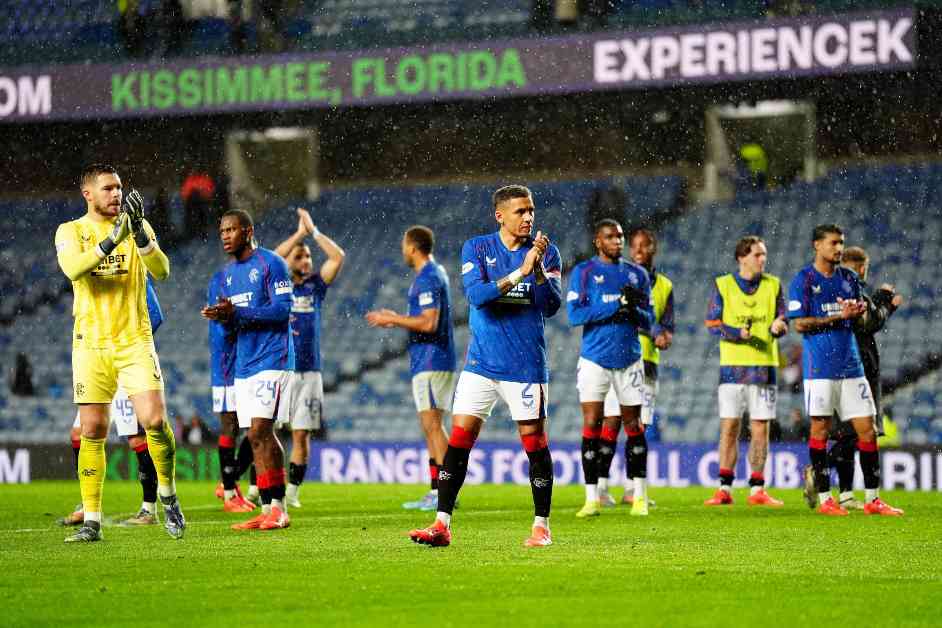Rangers’ latest financial accounts have raised concerns as the club reported a pre-tax loss of £17.305 million for the year ended June 30, 2024, a significant increase from the previous year’s loss of £3.108 million. Despite recording record annual revenue, the club’s losses have widened due to a decline in profit from player trading activities.
The key line in the financial accounts highlights the impact of player trading on the club’s financial performance. Profit on disposal of player registrations was only £5.632 million in the latest financial year, compared to £23.601 million in the prior year. This decline in profit from player sales has contributed to the overall increase in losses for Rangers.
Operating losses before player trading were reduced to £1.988 million in the year to June 2024, down from £10.495 million in the previous year. The club attributed this reduction to a jump in revenue and other operating income, including revenue grants and a business interruption insurance recovery related to Covid-19.
However, the lackluster performance of the men’s team and instability in the boardroom have added to the concerns of Rangers fans. The club is currently without a chief executive, a permanent chairman, and a director of football operations, raising questions about its leadership.
While Rangers have seen an increase in revenue to a record £88.309 million, the significant losses reported in the latest financial accounts highlight the challenges the club faces in optimizing its player trading model. The board has expressed confidence in the future success of the player trading model but acknowledges the need for improvement.
In comparison, Celtic also saw a drop in profits despite an increase in revenue, with the absence of non-recurring income contributing to the decline. The club’s profit on disposal of player registrations decreased in the year to June 30, 2024, reflecting the challenges faced by Scottish football clubs in player trading activities.
Overall, both Rangers and Celtic are grappling with financial pressures and the need to balance revenue generation with player trading activities to ensure long-term success. The future of both clubs will depend on their ability to address these challenges and make strategic investments to improve their financial performance.
































